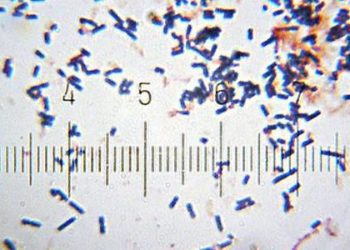Quick Take: Multicenter Trial of a Combination Probiotic for Children with Gastroenteritis
The use of probiotics has been suggested as a way to improve outcomes in children with gastroenteritis. In this randomized controlled trial, investigators randomized 886 children age 3 to 48 months of age with gastroenteritis to receive a placebo or combination product containing Lactobacillus rhamnosus R0011 and L. helveticus R0062 in order to evaluate the effectiveness of probiotics in preventing moderate-to-severe gastroenteritis. The percentage of participants with a modified Vesikari score of 9 or higher after enrollment (an indicator of moderate-to-severe gastroenteritis) were similar between the two groups (26.1% in probiotic group vs. 24.7%, p=0.65). Researchers found that probiotic use did not prevent the development of moderate-severe gastroenteritis (OR 1.06, 95% CI 0.76 to 1.49, p=0.74). There were also no significant differences observed with respect to median duration of diarrhea (p=0.31) or vomiting (p=0.18). In terms of number of episodes of diarrhea and vomiting, investigators did not observe a significant difference in number of diarrhea episodes (p=0.78), but did observe a higher number of vomiting episodes in the probiotic group (incidence rate ratio 1.36, 95% CI 1.13 to 1.63, p<0.001). Taken together, results from this study indicate that probiotics do not improve outcomes for gastroenteritis, but may, in fact, cause more episodes of vomiting. It should be noted, however, that the trial used a specific probiotic product, making results difficult to generalize to other probiotic products and conditions.
Click to read the study in NEJM
Image: PD
©2018 2 Minute Medicine, Inc. All rights reserved. No works may be reproduced without expressed written consent from 2 Minute Medicine, Inc. Inquire about licensing here. No article should be construed as medical advice and is not intended as such by the authors or by 2 Minute Medicine, Inc.






